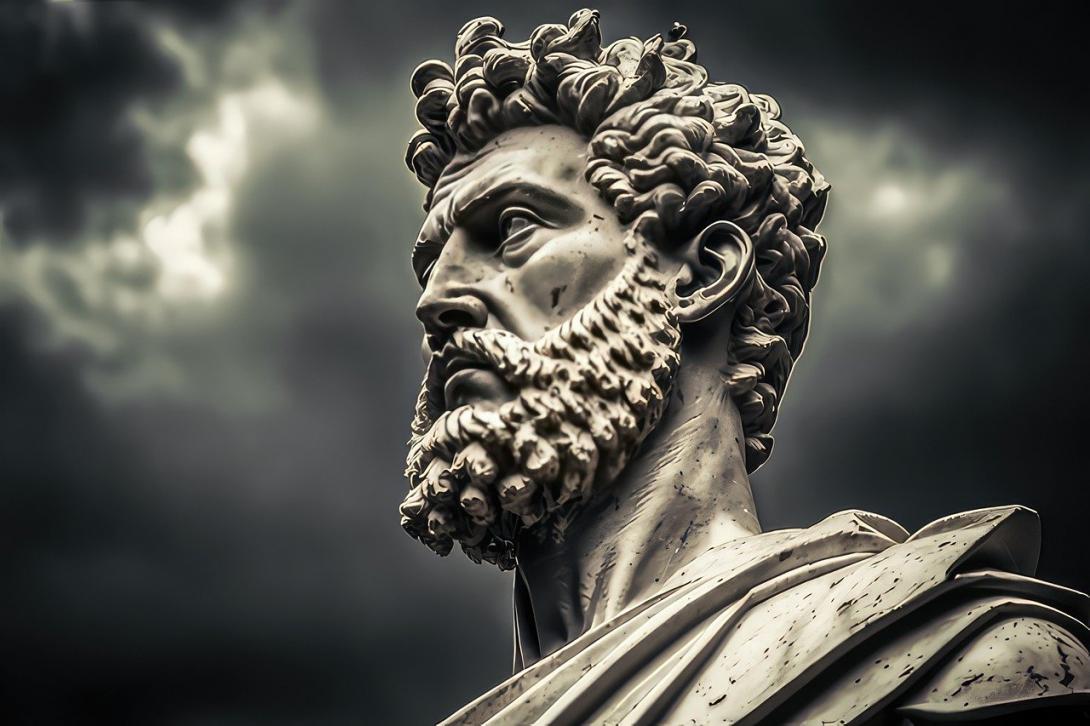“Everything we hear is an opinion, not a fact. Everything we see is a perspective, not the truth.”
not a quote of emperor Marcus Aurelius
The quote above is in most cases assigned to Marcus Aurelius as written in his meditations. Unfortunately he never said anything like that in his meditations or any written account about him, but it could be said by him as it reflects his philosophy and attitude. I personally don't know from where or whom this quote orginates from, but it suits my argument here in two ways. First, the quote itself is very accurate aboute sources and perception, second, it shows how we percieve history.
In general we suspect from the collected sources that the information we have from the past form a clear picture, maybe blurred in some spots. But the knowledge of the past is much more complicate and fragmented as it seems on the first spot.
Timeline of writing
This short list has neither to be complete nor correct, but should give a little insight what we are dealing with.
- 313.000BCE First evidence of a Homo Sapiens (skull fragment in Marocco) est
- 100.000-200.000 BCE development of speech
- 35.000 BCE first Cave paintings
- 18.550 BCE first settlements (Ohalo II)
- 9000 BCE First evidence of written clay tablets
- 3000 BCE Papyrus rolls
- 300 BCE use of Pergament
- 1501 CE Printing Press
- 1969 CE Arpa Net
- 1981 CE Usenet
- 1985 CE Internet
What we are dealing with are enormous timespans accumulating information. But the information is permanent in the state of decay. Permanence of information is a bigger issue than most people today are aware of. For example, there are existing archives of historical photographies and documents running a race against the loss using the digitalisation of analog information. The crux with the digitalisation is that the digital information is less permanent than for example a handwritten manuscript, a clay tablet or cave paintings.
The scrolls of Qumran, nevertheless their fragility, have survived for nearly 2000 years. A CD or DVD would have problems to compete with this permanence. Today we are losing permanent information forever in a growing scale. Of course we gather information quicker and quicker, but we are losing it in a growing rate.
Authorship
We must be aware, always, who left us written sources. In most cases it were men. Woman were often neither educated nor able by social status to write and study. Which excludes half of the people living from giving an insight into the past. Most men were also not able to leave historical sources, the ability to write and read was not widespread. The most common originators of written sources were educated men with time and interest to write down certain events and texts. This were mostly priests, men of the upper class or their educated slaves. Shepperds, farmers, craftsmen are rarely represented in the written sources.
We must be aware that this people represent the opinions and views of their social classes and therefore shape the picture we have from the written documents. A great exception from this are grafitti like the ones im Pompeji there for example soldiers, peasants and prostitutes left written evidence of their lifes. Also we have carvings and writings on everyday objects like written in runes "this belongs to Knut" on a comb.
Fragmentation
When we take a look on history we could assume that we have a neat and whole picture, smooth and without blurry blotches and edges. The truth is, or better said, a truth which is better working within the world is, that we have as a metaphor a giant room, full of mirrors and each mirror reflects what has happend to a certain time and a certain place to certain people. Within the long time the mirrors are broke into splinters and fragments and most of the fragments are blown away. The rest, the tiny particles of historical evidence has been collected by interested people, historicans, scientists, storytellers, whores, thieves and beggars and were transported through time to get stick together to pictures which fit together more or less well. We run throught the metaphorical pages of history, looking at the pictures and reading the stories and believe, "Yeah, this is what happened".
To be fair, historicans and scientists did a good job on working on the picture, but history is still that. A story we told our selves at a campfire in the darkness beneath a starclad sky.


Comments